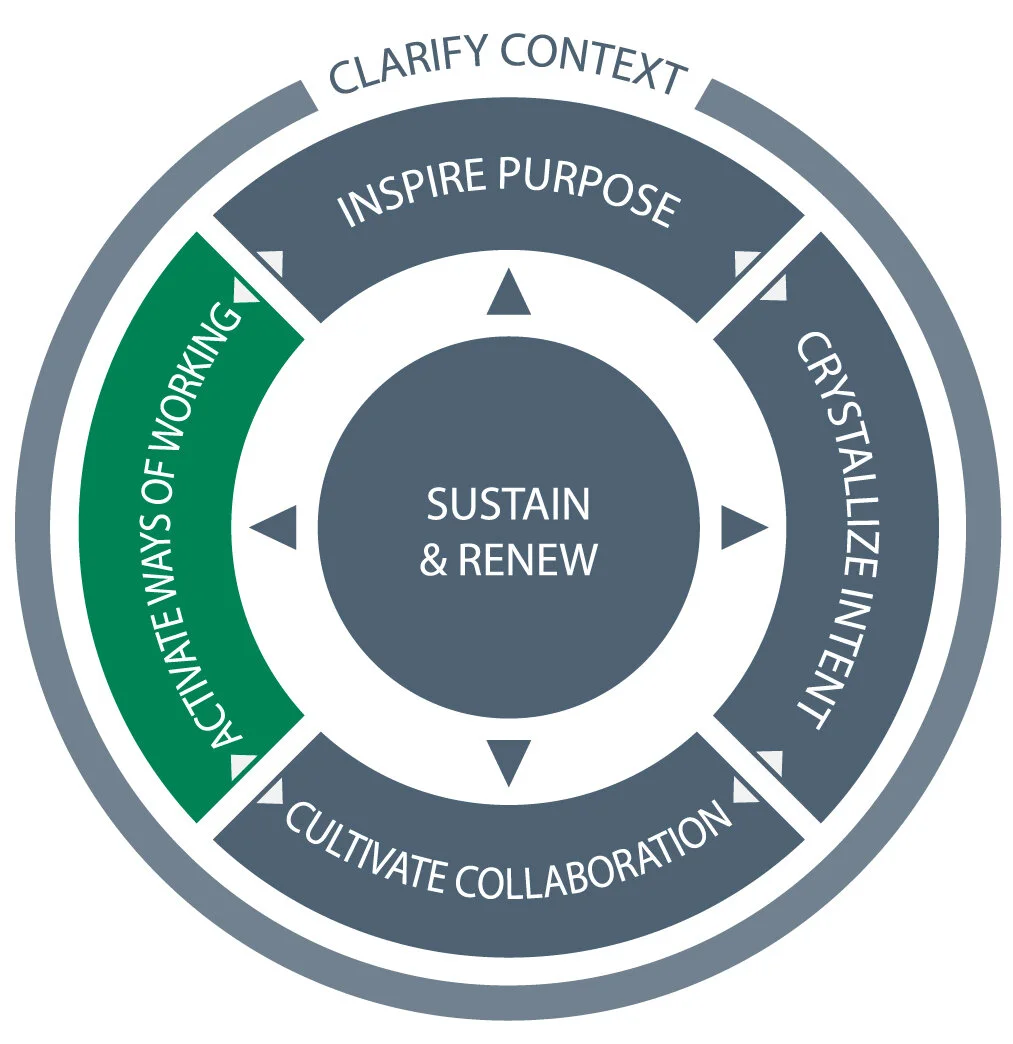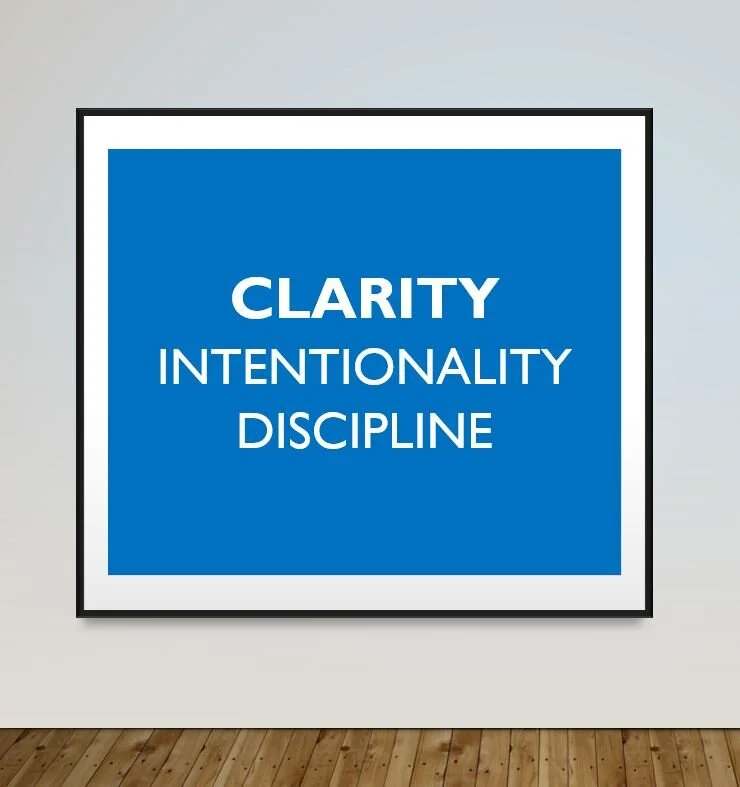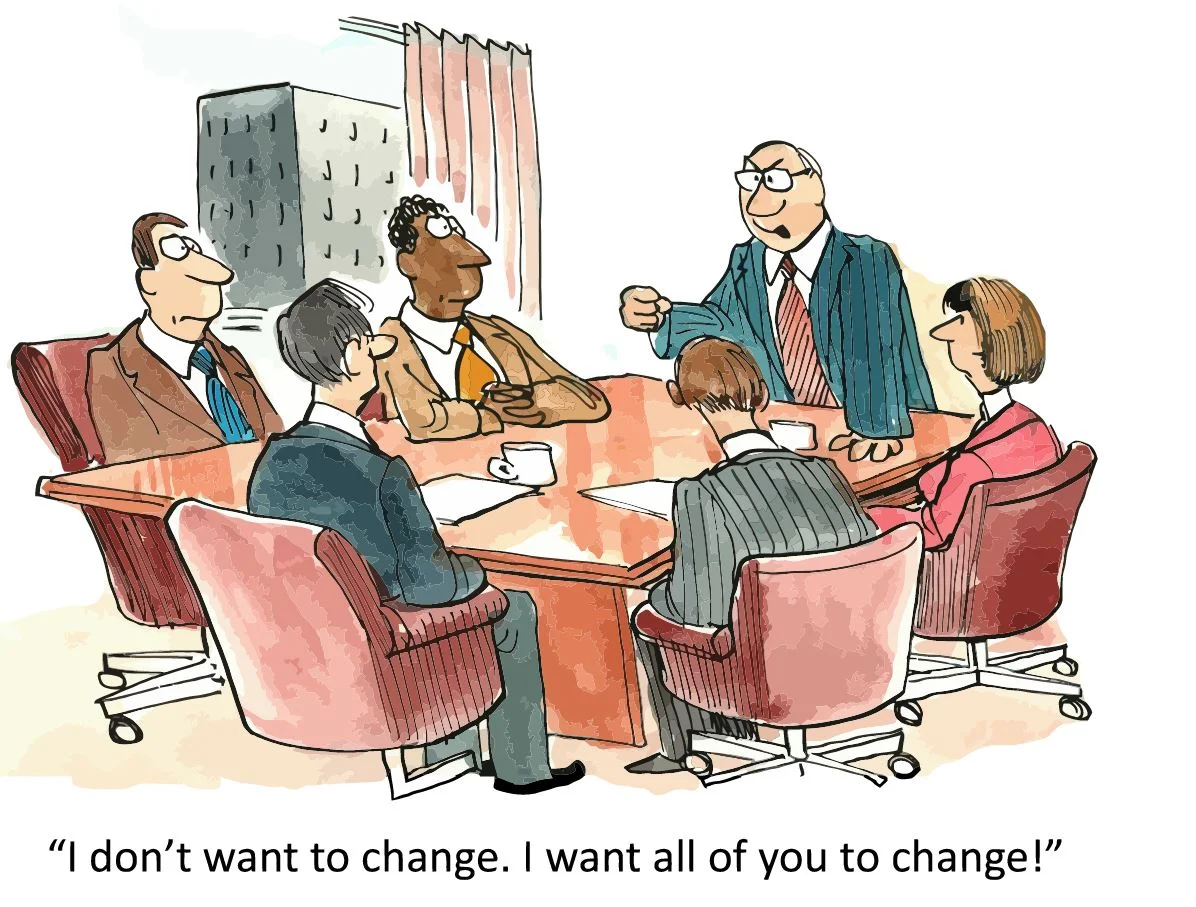Team stages tell you little nowadays. We still base team development on theories from the 1950s and '60s. Those concepts made sense in their day but organizations and the world they operate in have moved on. It doesn’t matter when a team was formed or how much time they spend physically together: there’s work to be done and people must work together to do it. We’re ready to share a new, improved approach to teamwork with you and your organization.
Read MoreThere is a presumption that you have to build trust to create a great team. I see it differently. Trust is not a necessary precursor for effective teamwork. Trust is an outcome of people collaborating on meaningful work. Read this to find out more.
Read MoreActivate ways-of-working is how you make sure your meetings are built around what matters to everyone on the team.
Every month or every quarter commit to stop, inquire, reflect and improve. Connect your learning sessions to specific areas that you want to enhance, even to specific on-going work that could benefit from the lessons learned. That’s the heart of Sustain & Renew as a discipline.
Read MoreYou come to this third Practice knowing why your collaboration matters, which work requires collaboration, and who should be doing it. Cultivate Collaboration is the payoff for all that work. It is about contracting, connecting individuals to the work of the team. Cultivate Collaboration is about creating more intentional collaboration. In fact, it’s the only Practice that is directly aligned to Intentionality.
Read More“TOGETHER WE ARE COURAGEOUS ARCHITECTS OF THE FUTURE OF PETCARE”.
This statement is not only inspirational and aspirational, it’s also practical. For example, if a topic didn’t deal with the future of the entire petcare segment, if it wouldn’t make a difference to what the segment might look like 5 or 10 years ahead, that topic wouldn’t make it onto their agenda.
Read More…As accurate as it was, descriptions of team needs weren’t going help people who just wanted to know what work had to get done, and how they ought to go about it. So, I wondered, “How could I augment Three Imperatives so we would have something teams could use to generate collaboration and teamwork?” They needed the actual Practices to . Allow me to describe the six practices and how they align with the three imperatives.
Read MoreWithout clarity we waste time in meetings we don’t need to be part of, listening to stuff we don’t need to hear. What’s worth meeting about and engaging around? It’s that simple.
Read MoreTeam dysfunction? Spoiler alert: The manager is always the problem.
Read MoreTypical team building can be fun. If nothing else it offers a break from the same-old, same-old back at the office or factory. But fostering “teaminess”, that shallow, short-lived version of team spirit, will not make your team better. If you want a stronger team work together on things that matter.
Read MoreTuckman’s Stages of Team Development may be useful for psychologically analyzing conflict, but not for helping a team get things done.. His stages are based on research that is no longer relevant, especially in the workplace. What’s more helpful: “What are we going to do?” or “What stage are we in?”
Read More









